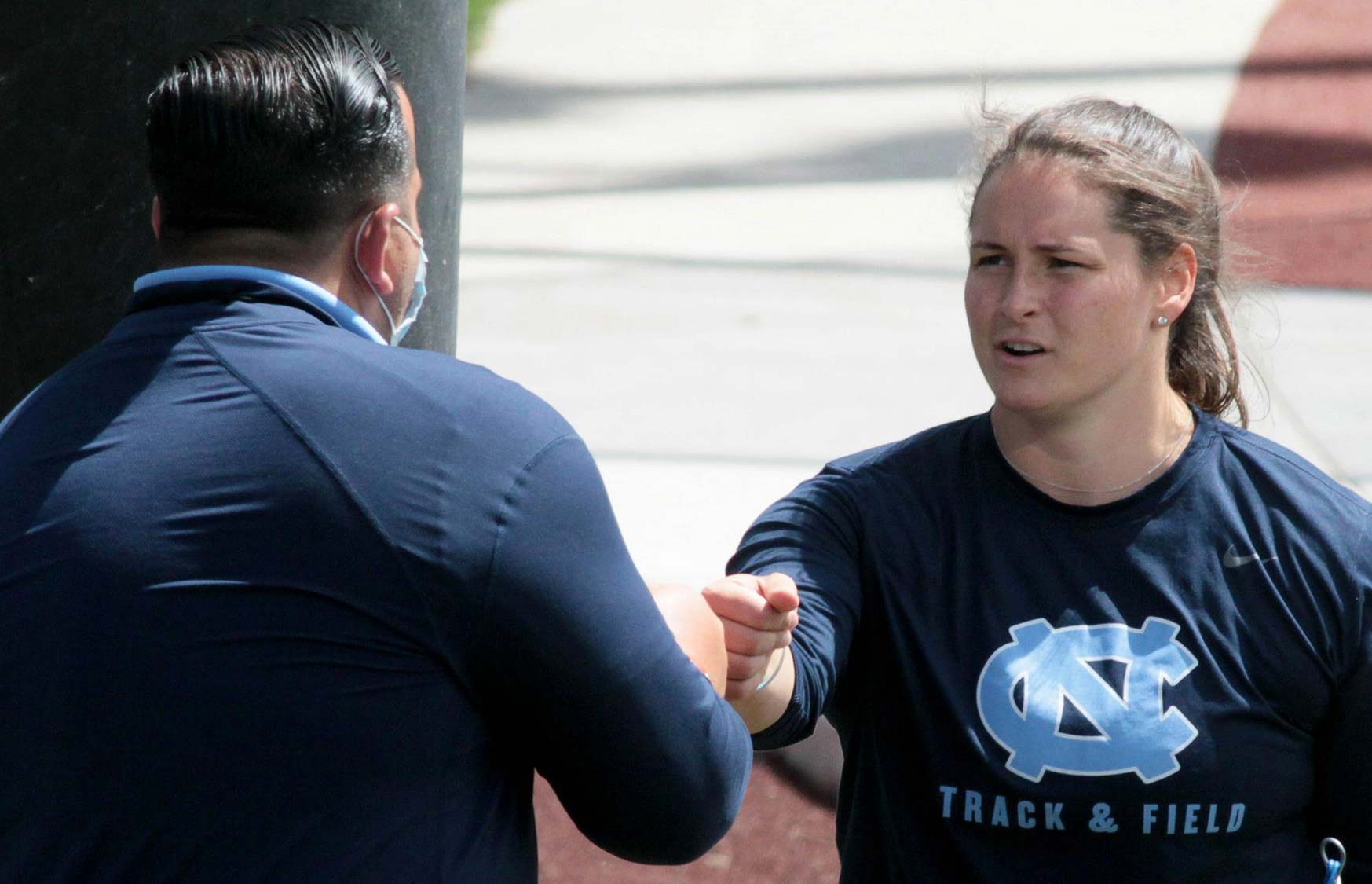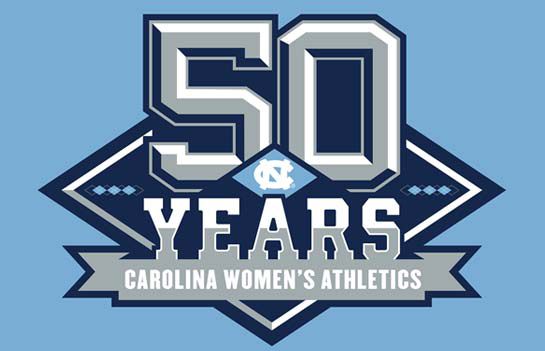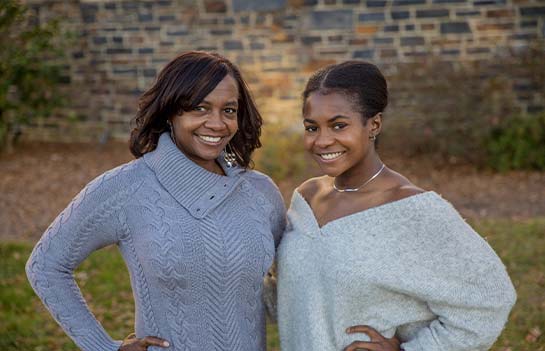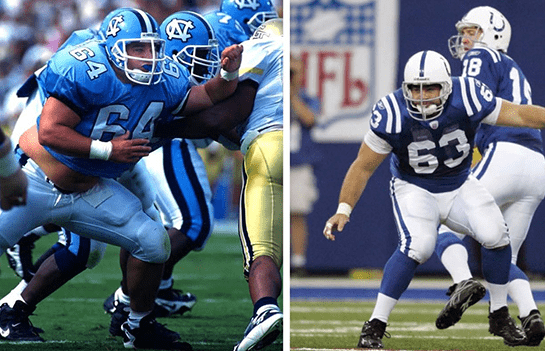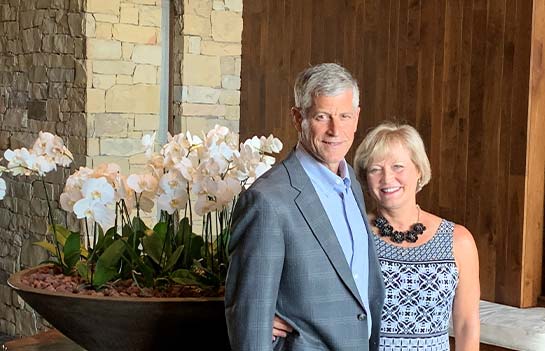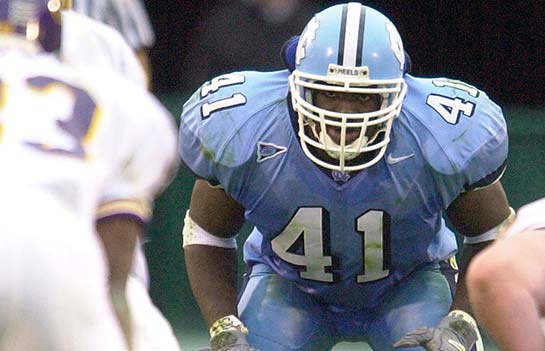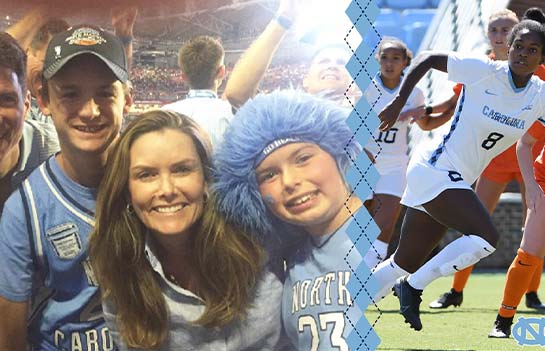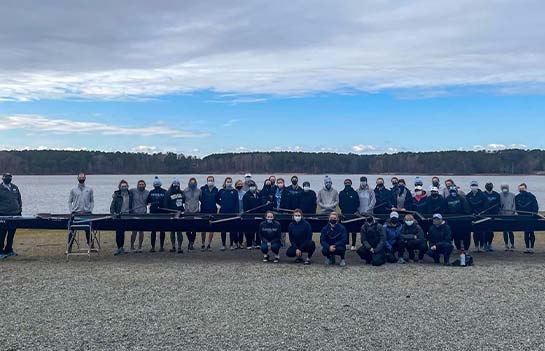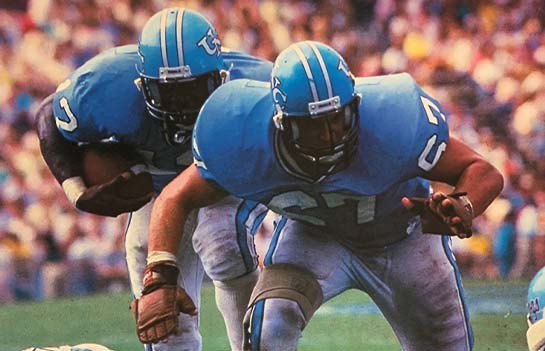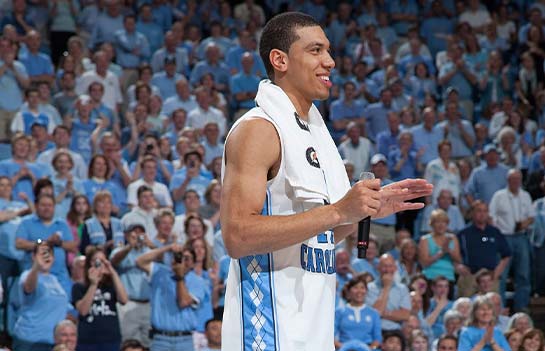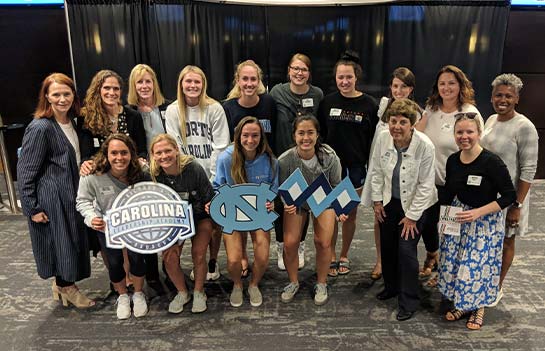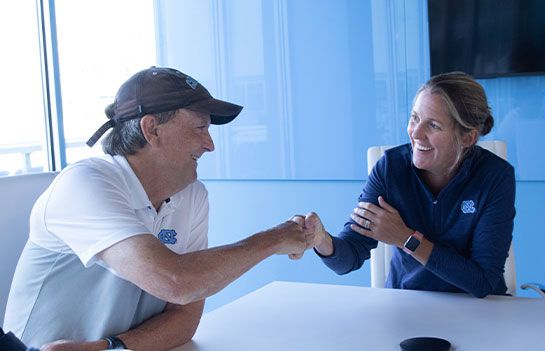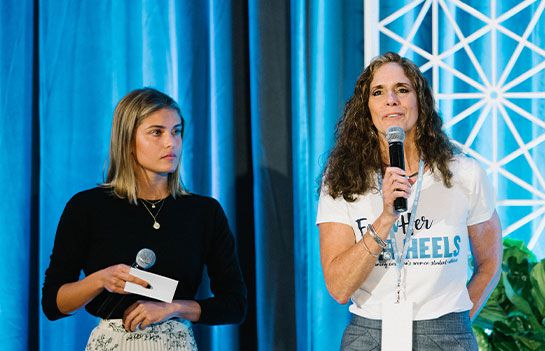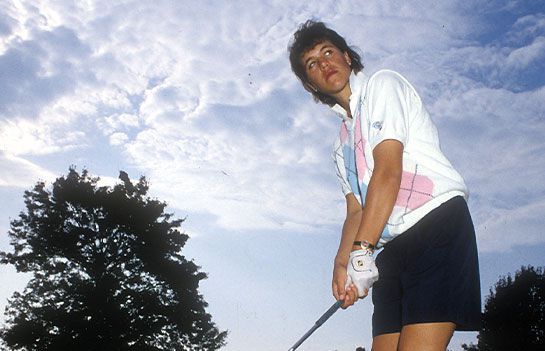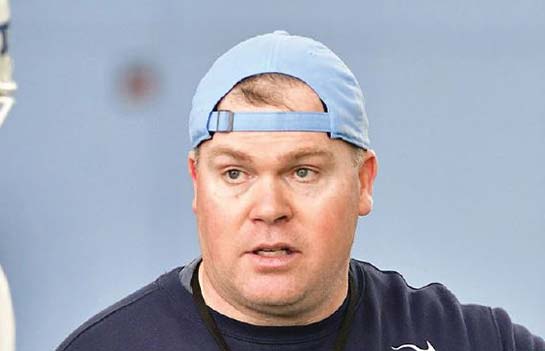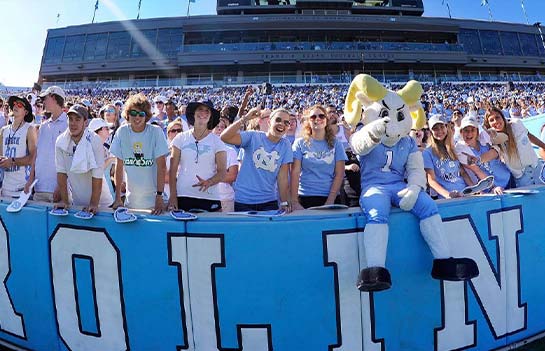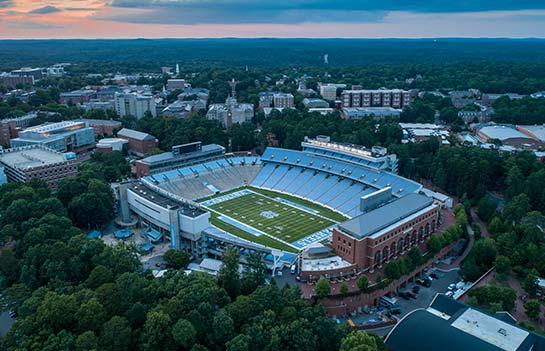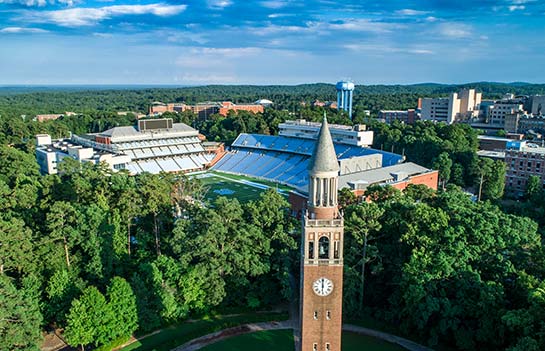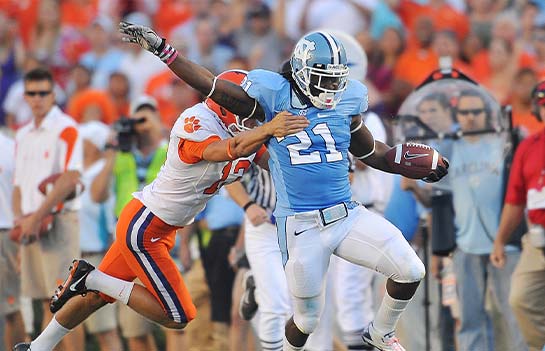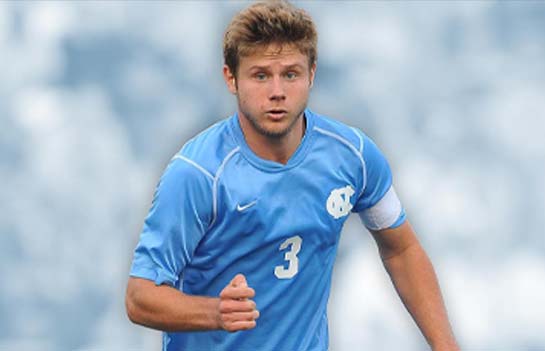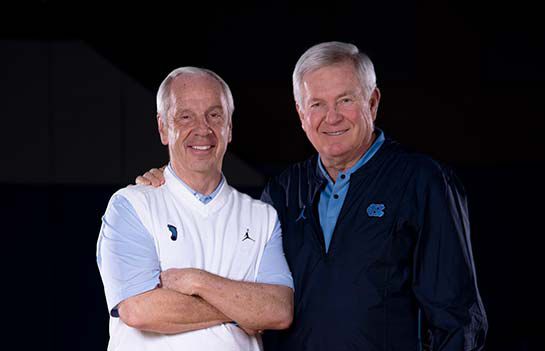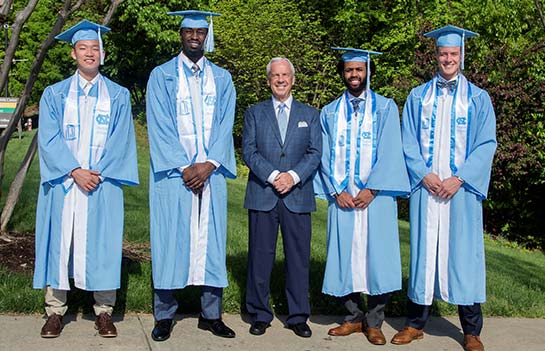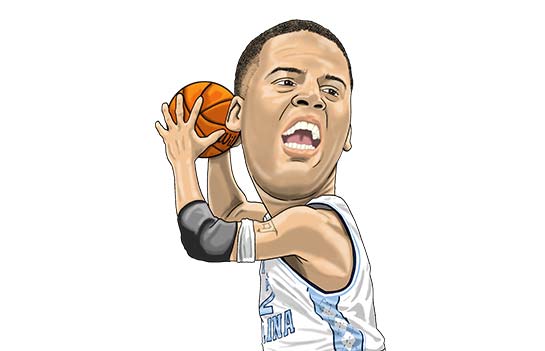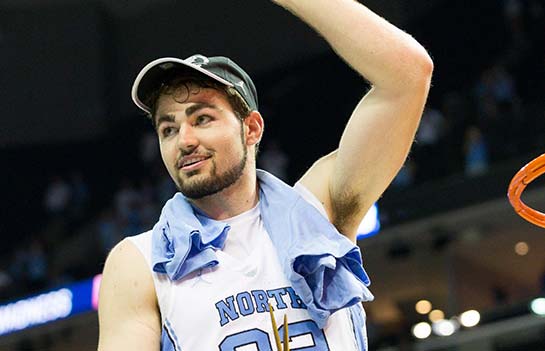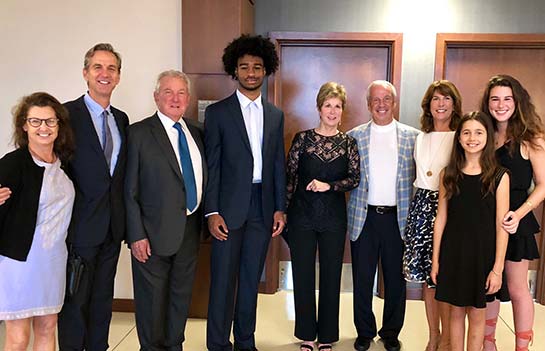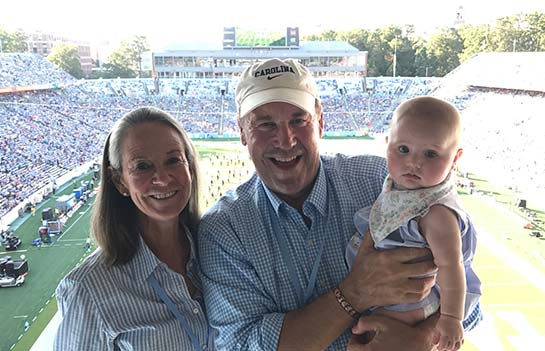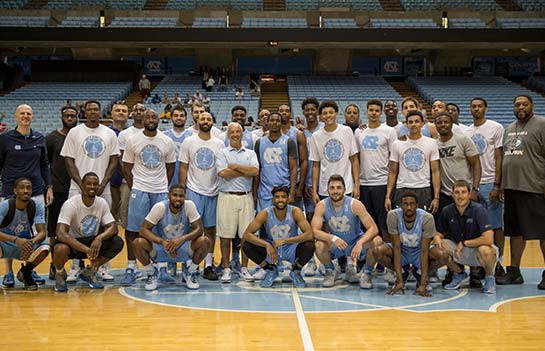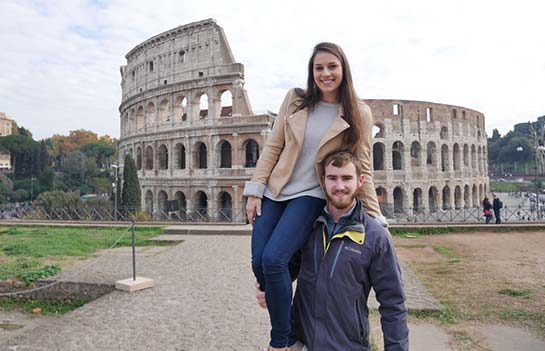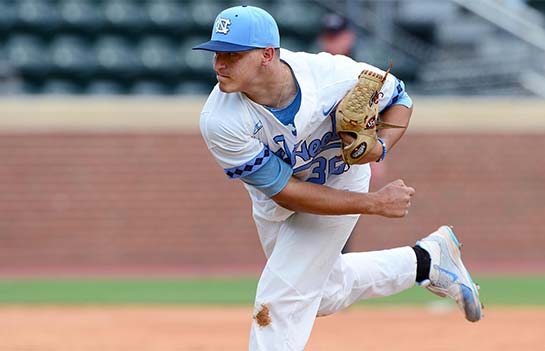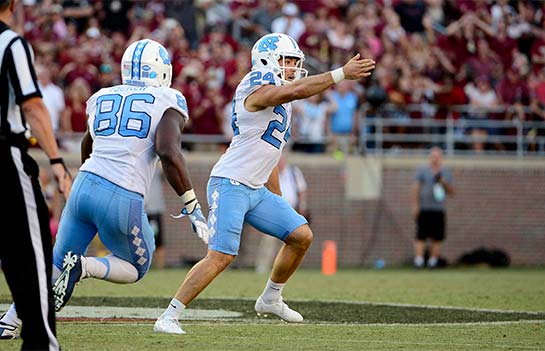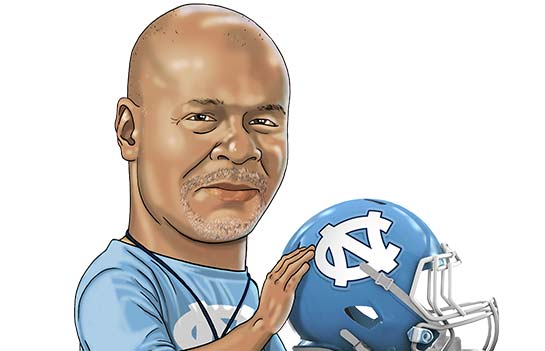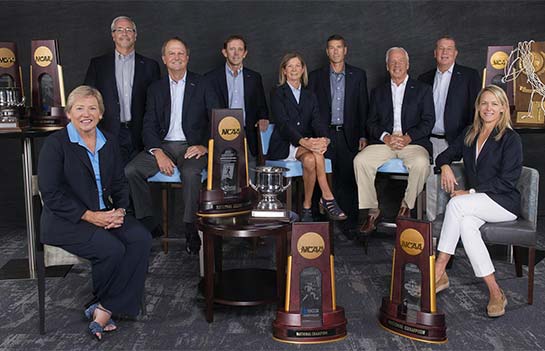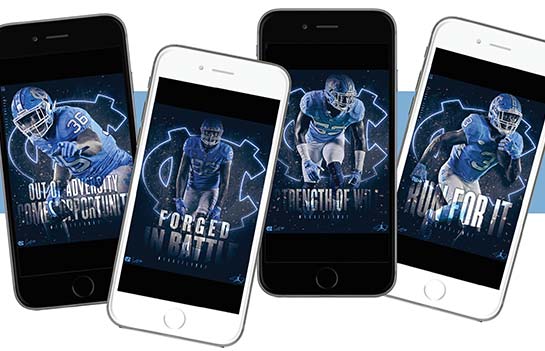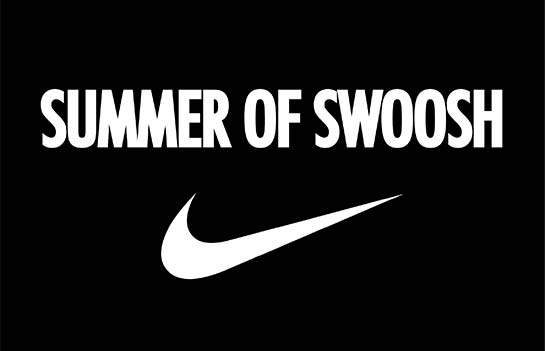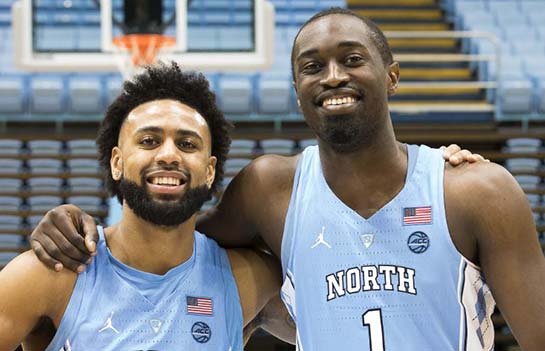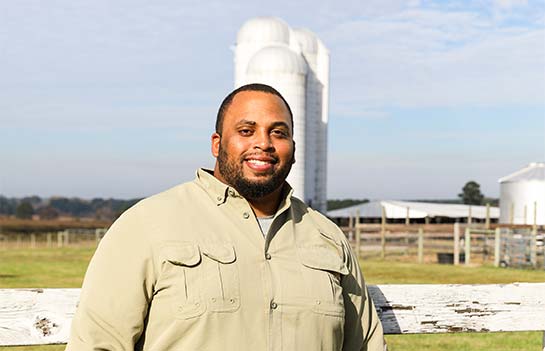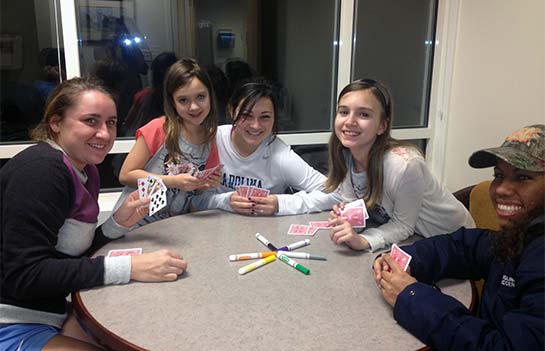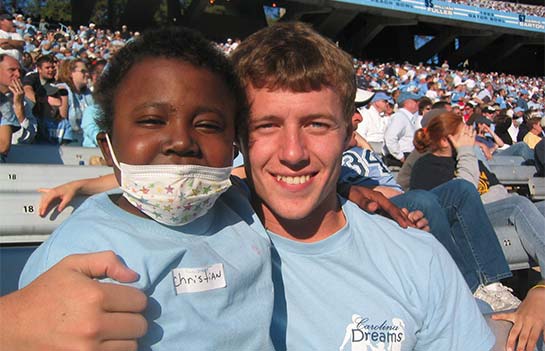Mister Mitch
By: Lee Pace
It was the summer of 2012 and Mitch Mason was laboring over an important career decision. Having served as associate pastor at a church in Clemson for three years and volunteering with the Tiger football team on various counseling and mentorship issues, Mason had been approached about a new opportunity at Carolina under new football coach Larry Fedora.
The idea of Mason going to work for the Fellowship of Christian Athletes and being assigned to UNC as the football team chaplain was met with some skepticism among some of Mason's Clemson associates – most notably because of the agent/academic cloud that at the time had been hovering over Chapel Hill for two years.
"I listened to what they said," Mason remembers. "Then I said, 'You know what? I'm a Christian. If they have this scandal over them, it means I'm being called to go there. They may be struggling now, but they're not going to be struggling for long.'"
He's never looked back.
Over seven years of Fedora running the program and now two with Mack Brown as head coach, Mason has become one of the most important forces behind the scenes of Tar Heel football. He leads player and staff Bible studies, is available for one-on-one counseling, and conducts chapel services before games and occasionally on Sundays. If a player wants some guidance and a sympathetic ear on anything from football to girls to grades to home life, Mason is there. He has officiated innumerable weddings not only for Tar Heel players, staff and families but Athletic Department and Rams Club personnel as well.
"Life's bigger than football," says Mason, a native of Florida and a former collegiate defensive back. "Football may be the tool that brings us together and helps us learn about life and have some fun along the way. My job is to be the 'super glue' to hold it together."
One of Fedora's priorities upon taking the Carolina job in December 2011 was to create a chaplain's position.
"I accepted Christ in the ninth grade at summer camp in Fayetteville, Arkansas," Fedora says. "That was my first taste of the Fellowship of Christian Athletes. It has meant a tremendous amount to me. We had a chaplain at Oklahoma State. When I went to Southern Miss, I arranged to hire a chaplain. It was important to find someone to lead our kids off the field here at Carolina."
To do that, Fedora followed a procedure used at other public institutions where there exists a separation of church and state. FCA leaders raise money from private individuals to fund the chaplain's salary, benefits and expenses, and the chaplain is officially an employee of FCA. Johnny Evans, the former N.C. State quarterback and director of the Eastern North Carolina FCA, coordinated the fundraising efforts for the Tar Heel chaplain.
"Two things stood out to me," Evans says. "First, humility. Mitch has such a humble spirit about him. Second, his spiritual maturity. He had ministered before. He had counseled before. He had coached, so he understood the life of a coach. He had been a college football player. He had such a broad background that we felt it was ideal for what we were looking for."
If the mother of a Tar Heel player learned she has breast cancer and wanted some support while telling her son …
If a little sister of a Tar Heel was missing and later found by law enforcement to have been assaulted and now is in the hospital …
And if a player struggles from the transition of being a big fish in high school's little pond to just being one of 85 exceptional athletes on a highly competitive college team ...
"Mister Mitch," as he's called in the halls of Kenan Football Center, is there.
"Mitch is someone I could go to to talk football or life," says Nazair Jones, a defensive tackle from 2013-16. "He always was there with wisdom and guidance. He helped me unscramble all the emotions you go through, helped me mature and see the big picture."
"I come from a big family and liked Carolina because it felt like a family," says Bug Howard, a receiver from the same era. "Mitch made me feel like I was 'home' all the time. If you had no one else to talk to, if you didn't want your dad or your girlfriend to see you cry, Mitch was there. He'd shoot straight – not always telling you what you wanted to hear but telling you what you needed to hear."
Mason remembers once taking a call from the mother of a Tar Heel who told him her son had had four men of influence in his life. One, his father, had walked out on him. Another, the Carolina assistant coach who recruited him, had left for another job. Now a third, his high school coach, had just died.
"You're the fourth. Please don't let him down."
Mason's name and face were just one of dozens flashing in front of Brown when he took the Carolina job in late 2018 and began navigating his way amid incumbent support staffers. Mason was repeatedly endorsed by those Brown trusted as someone to retain.
"Everyone said, 'Keep Mitch,'" Brown remembers. "I asked, 'Why?' They said because he has such great communication with the players and is such a great resource for them. When they have trouble, he's a guy they can lean on. The program had been through a tough two years – five wins total. Mitch was their rock through a time when there wasn't much positivity going on. It became an obvious choice to keep him, and I'm glad I did."
About the time the worldwide Covid-19 pandemic was hitting in February 2020, Mason noticed some discomfort in his back that wouldn't go away. He sought medical treatment and, over the course of the same year that dogged the world with a deadly virus, Mason has battled what was eventually diagnosed as Idiopathic Small Fiber Neuropathy. It's a nerve disorder for which there is no known cure. He's been dogged with migraines, seizures, difficulty walking and using his hands, occasional fainting and memory loss.
His contact with the team has been limited, though he's visited practice when feeling good and has done chapel services via Zoom.
"Mitch is an inspiration to all of us," quarterback Sam Howell says. "When he comes to practice, he's got a smile on his face. You'd never know there was anything wrong with him. He's a great role model for this team. Football is important, but at the end of the day, we're on this earth because God put us here and our job is to serve him. Mitch does a good job passing that message on to our team."
The Tar Heels dedicated their game against Virginia Tech in early October 2020 to Mr. Mitch. During a walk-through the day before the game, Mason was patched into Kenan Stadium and communicated to the players through the video board in the stadium. The Tar Heels dominated Virginia Tech the next day and, though Mason couldn't be with them in person, he certainly was in spirit.
"That was awesome, and the dedication certainly gave us extra motivation," Howell says. "He's someone we care about so much, means so much to us. We wanted to do something special for him and give him something to feel good about."
Matt Littlejohn is a Rams Club member, season-ticket holder and among those who have contributed annually to the UNC Chaplain's Fund through FCA. He is also among a group that has raised the money to name the office that Mason occupies on the second floor of Kenan Football Center in his honor.
"Mitch has a certain spirit about him," Littlejohn says. "You see this in great leaders. There are people on this earth that others gravitate toward. He has a quiet confidence and is always looking to uplift everyone around him. You spend time around him, and it only makes you want to spend more.
"Naming this office for Mitch is a small gesture to give back to him a tiny bit of what he's given to these student-athletes for so many years."
Meanwhile, Mr. Mitch goes about fighting the good fight, practicing what he's preached for so many years.
"Even though I'm tiring, I will not quit," he says. "I've got too much work to do, too many people to impact."
And he's an inspiration to all those around him.
"He's an amazing man and a strong fighter," Jones says. "He's got a strong support system with his wife and two kids. He'll continue to fight. It's terrible to see someone who does so much good in the world have to go through something so difficult."
"The more people we can have in our program who have overcome so much as he has and still stay positive helps us so much," Brown says. "Their stories are invaluable.
"And he puts everything in perspective when he comes to practice with a smile on his face. You'll quit griping about little day-to-day things in a hurry."
More Stories
The impact of giving comes through in wonderful stories about Carolina student-athletes and coaches, as well as the donors who make their opportunities possible. Learn more about the life-changing impact you can have on a fellow Tar Heel through one of the features included here:
